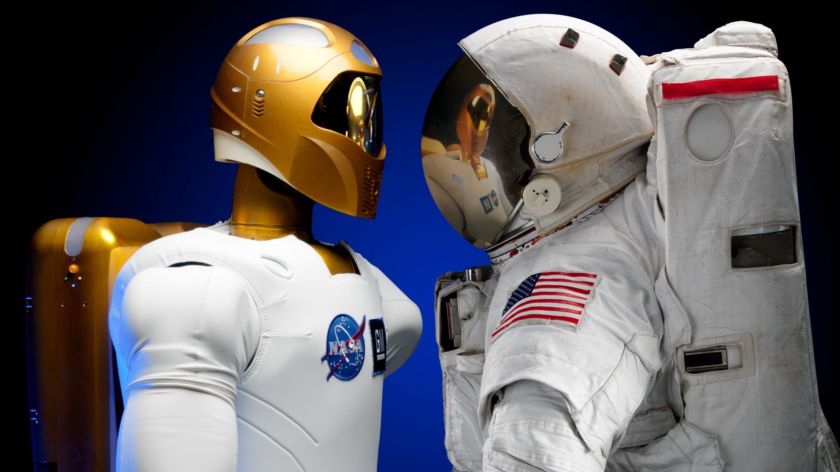The foresight of science fiction
-
 Foto: Skeeze / Creative Commons.
Foto: Skeeze / Creative Commons.
This week, the international science film festival InScience starts in Nijmegen. In a short series, we take a look at the programme. Today: researcher Max Hinne about Artificial Identities. What do Hollywood films and Netflix series teach us about the future of AI?
Postdoc researcher Artificial Intelligence Max Hinne is not only a huge fan of intelligent machines, but also of films. Especially of science fiction films. This weeks, he speaks at AI – Artificial Identities, a series of six short films about the artificial intelligence of the future.
From the Facebook algorithm that knows what you want to see to your grandma’s care robot: artificial intelligence is everywhere. Films, but also big series like Westworld and Black Mirror make clever use of that fact. So it is no wonder that AI is the main theme of InScience festival this year.
Frankenstein
However, AI is much older than we think, says Hinne. ‘This year is the two-hundredth anniversary of Mary Shelley’s story about Frankenstein. In that story, humanity already creates an artificial creature. That’s actually an example of what we would call AI these days.’
‘What we used to call science fiction thirty years ago, is now commonplace’
The big difference between Frankenstein and our time is that the difference between ‘science fiction’ and ‘science fact’ seems much smaller now, says Hinne. ‘What we used to call science fiction thirty years ago, is now commonplace. That makes the idea that films could become reality less strange. Look at Star Trek: that show had a smartphone in it fifty years ago.’
Friendly creatures
What does artificial intelligence look like in the future, according to filmmakers? After dystopian films like The Matrix and Terminator, in which robots take over the world, there seems to be more room to research ‘friendly AI’, according to Hinne. ‘Look at films like Her and the new Blade Runner, for example. In those films, you see human forms of artificial intelligence. That gives us the chance to think about how we can relate to a creature like that, instead of only seeing it as a tool or a threat.’
Hinne hopes that eventually, AI will reach a wider crowd through science fiction. ‘Science and technique develop themselves at a very quick pace. As a society, we do not often give these developments much thought. Science fiction can help doing just that, by showing multiple future images. That way, we can quickly form an opinion and create policies.’
InScience Festival takes place from 7 – 11 November. The main theme this year is artificial intelligence, but not the whole programme deals with that topic. Shorts: AI – Artificial Intelligence is screened at the 8th of November at 16.30 and Sunday the 11th of November at 17.30, In LUX.



